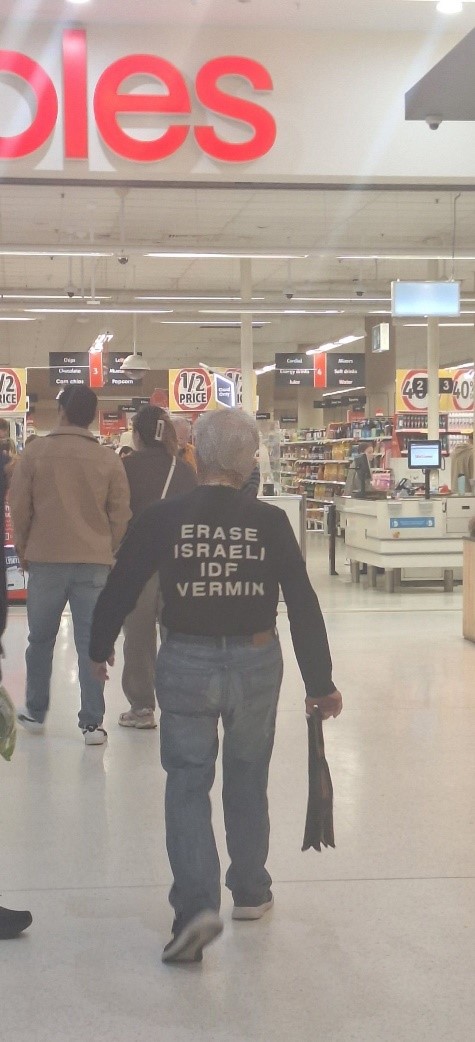Apparently it’s expected that I post a travelogue whenever I’m on the road.
My impressions after a few days in Brisbane is that it is a city exactly like Perth, although it’s on the cusp of braking through the time warp. The people are friendly and the City is flushed with cash, possibly due to the tax surcharges the rest of Australia have previously donated for flood relief.
My body clock remains on Perth minus four hours due to the relentless stream of updates about Israel as it sits on the precipice of war. There is hardly a mention, let alone awareness by the people around me of the existential predicament facing Israel. In an hour of need the gravity of the situation is lost amongst the bias and distortion of an inane media.
My non-Jewish colleagues have many concerns and conversation topics, from the weather to the footy, and even some genuine grievances relating to union thuggery and government mismanagement. I have first world problems of my own; receiving a fleishig meal on the plane during the nine days (can I still eat the rice?), and losing phone battery just as the uber order times out.
But it is the lack of intensity of the social interaction around me that both motivates and troubles me. All around Australia the days seem to meander. Rinse, wash, repeat. The more things change, the more they stay the same. Do we have a nation building project, or even worse, are we rapidly moving Australian values in the wrong direction?
All the while, our many friends and the defenders and people of Israel have a clear and shared vision. They also live inside a palpable pressure cooker. I feel their anxiety, and the powerlessness of not being able to respond to the falsehoods and vilification against us. Influencing others is a necessity, but it is also becoming seemingly futile.
I write these words having just returned from the recently developed Queensland Holocaust Museum. It is a very well developed facility, filling an important educational role. The facility opened last year, and has already had more than 3,500 schoolchildren visit with guided tours. They display state of the art technology, and also have an impressive online experience. Its establishment is decades overdue.
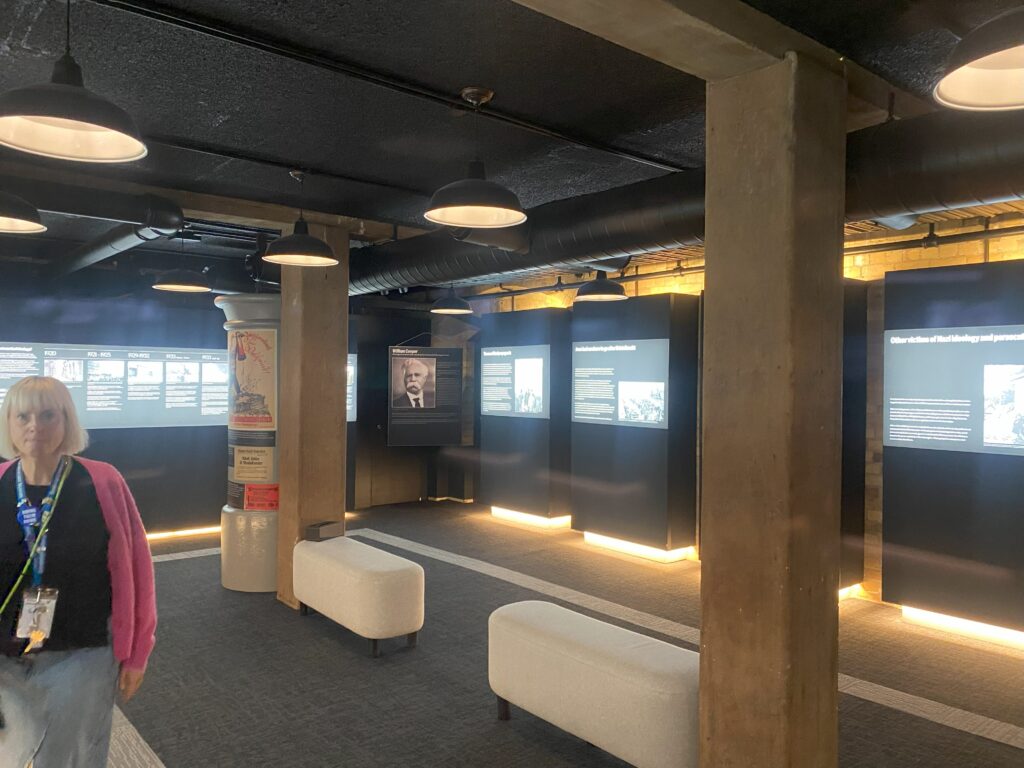
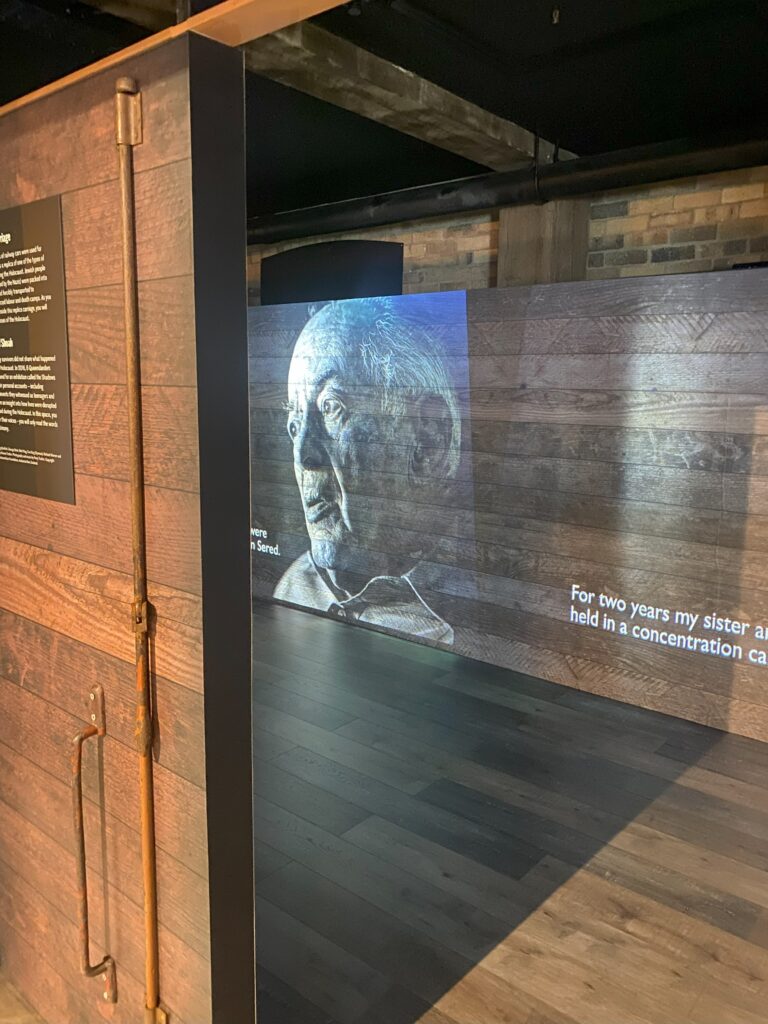
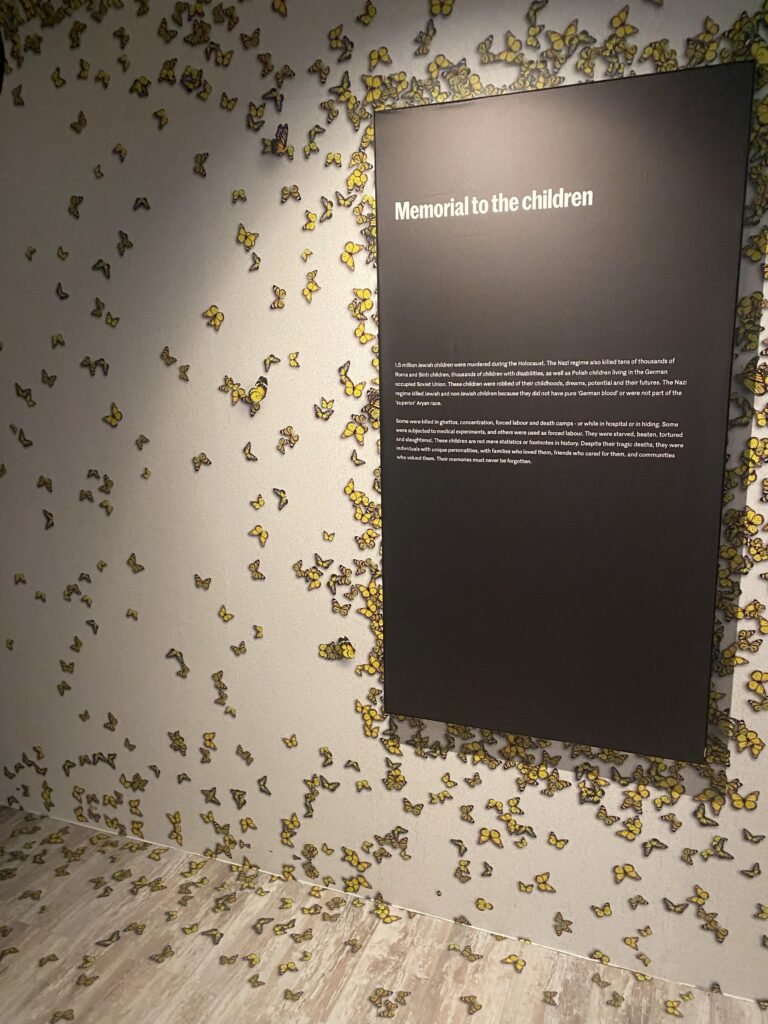
So too in Perth, the funding and implementation of a Holocaust museum is an important part of combatting anti-Semitism.
In particular I observed how the mantra of “never again” is a central theme, and the nexus to the tagline “never again is now” has not been lost from the discourse.
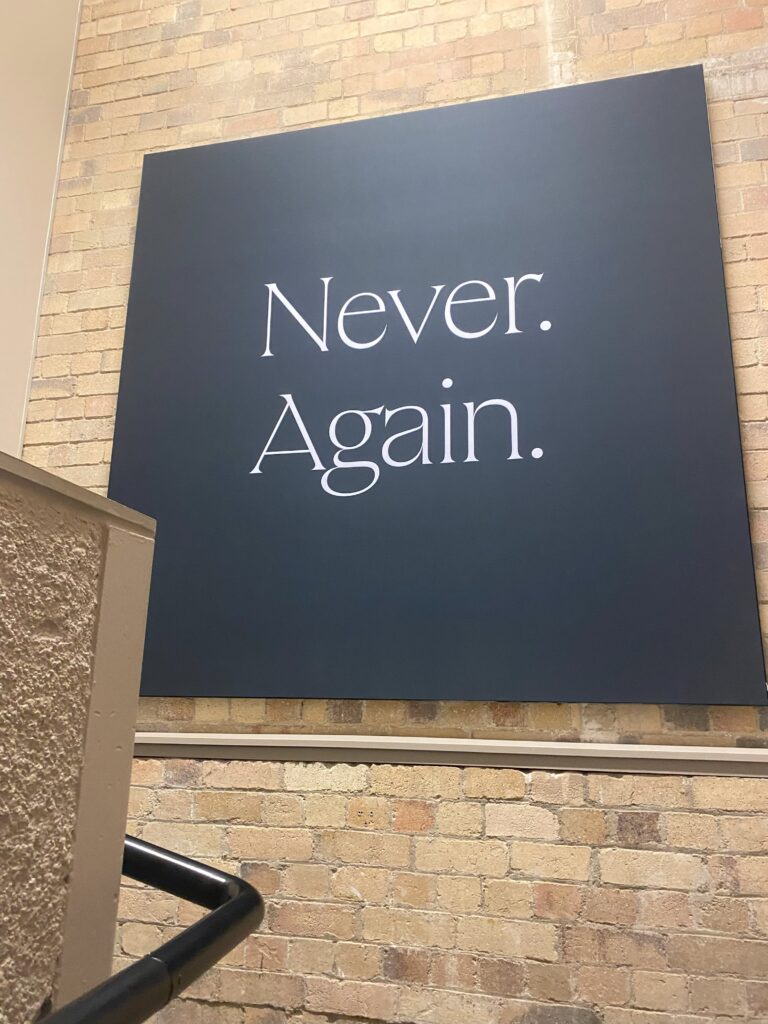
One thing I would like to see is a greater link between Holocaust education and education about Jewish ethos, traditions and beliefs. Particularly when presenting to non-Jewish school groups it is critical not just to teach them about the history of the shoah and historical legacy, but also about the aspirations and vision of Judaism, in perspectives that are ethic-cultural, religious and nation building. This does occur, but needs greater emphasis and focus. As the WA Holocaust Institute develops is new facilities I have full confidence this will be a critical element.
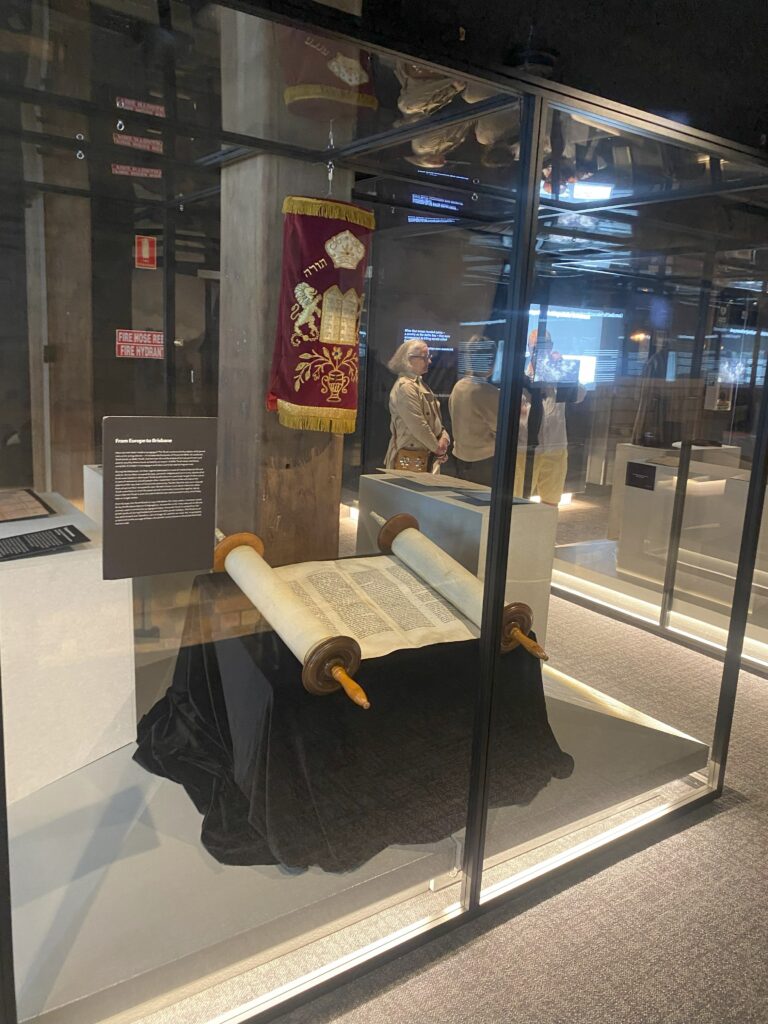
Jewish life in Brisbane remains similar to other smaller communities. The few friends and relatives that I met have connections to their community organisations and remain steadfast in their identity. I had the privilege of going to minyan this morning at the Brisbane Hebrew Congregation. The shule is a masterful architectural and heritage edifice. Like Hobart and the Great, the most important feature is not the grand aesthetics, but moreso 138 years post construction that it is still a functioning shul.
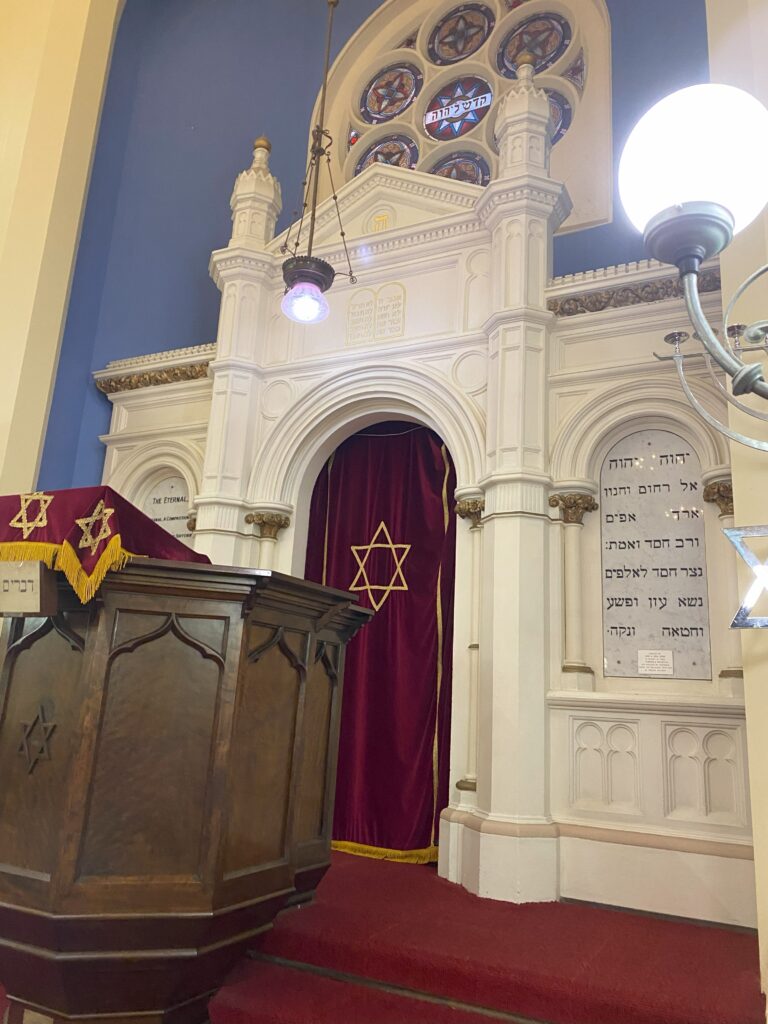
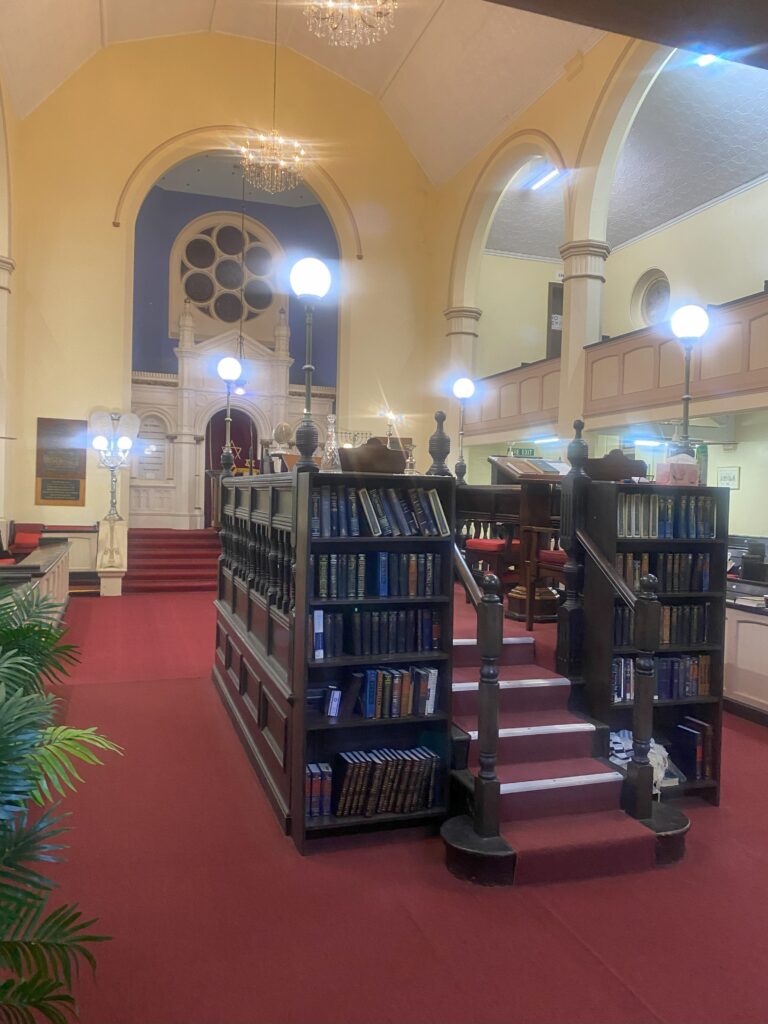
With a mindset amidst the nine days, and reflecting on the Brisbane Hebrew Congregation and the Holocaust Museum, my thoughts linger on the approaching day of Tisha B’Av.
It might be a form of Jewish dad joke, but for many years I’ve exchanged a greeting with a friend before sudah hamafsechet to have ‘a gutten churban’. This year such a remark would not be funny. Instead it is overly surreal and quite telling. In previous years Tisha B’Av has been a nod to the calamities of the past. This year we navigate through the nine days with a real and existential threat hovering over our nation. We don’t have to try and internalise Tisha B’av from an intergenerational standpoint, as the meaning of the day has taken full hold of our contemporary psyche.
We know Israel is strong and has proven its capability in recent weeks, particularly in military intelligence. Citizens of Israel are the first to say that they do their best to maintain normality, that there is no room for complacency, and the vulnerability is real.
Here in the Diaspora we don’t live under this cloud of life or death. Unlike the people who surround me at the moment, I still feel a shared apprehension at every moment. We know the script of this period within the Jewish calendar, and it is full of historically repetitive tragedy.
This morning I received a video clip of Hatikvah, Israel’s anthem of hope. It prompted a link to the words of the prophet Zechariah (8:19), who says the fast of the fifth month (9 Av) will become a day of joy and celebration for the house of Judah, and the world will come to love truth and peace. The concept is further reinforced by the Rambam in the Mishneh Torah (Hilchot Taaniot 5:19).
In the megilla Eicha, Tisha b’Av itself is called a “moed” (holiday). This isn’t just homiletics, our mourning diminishes in intensity as the day progresses, further acknowledging that the nature of the day will eventually take us from despair to joy. Replete with messianic vision there are many interpretations both rational and mystic, one as the vision of an epoch of global transformation.
Simchat Torah last year was day of joy that rapidly transformed to a day of devastation. Just as rapidly, we hope that Tisha B’Av this year will be reversed from mourning to rejoicing.


